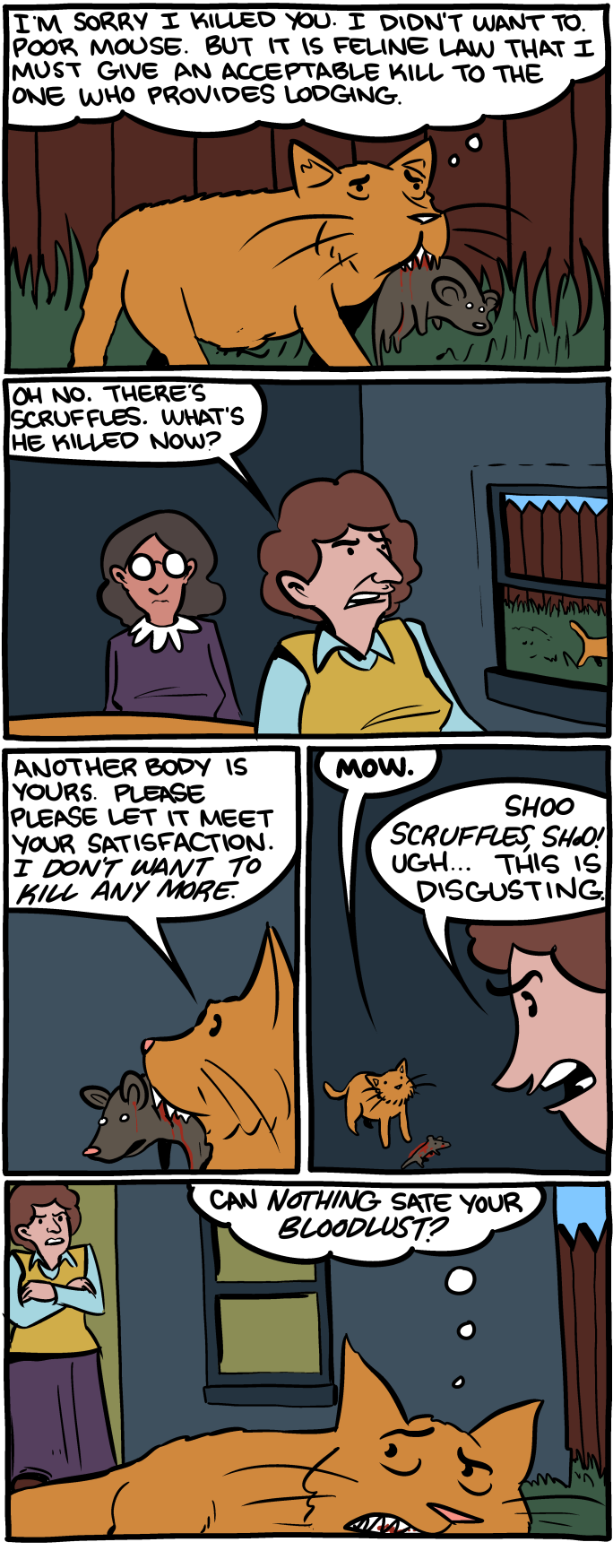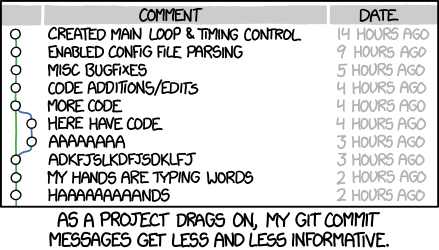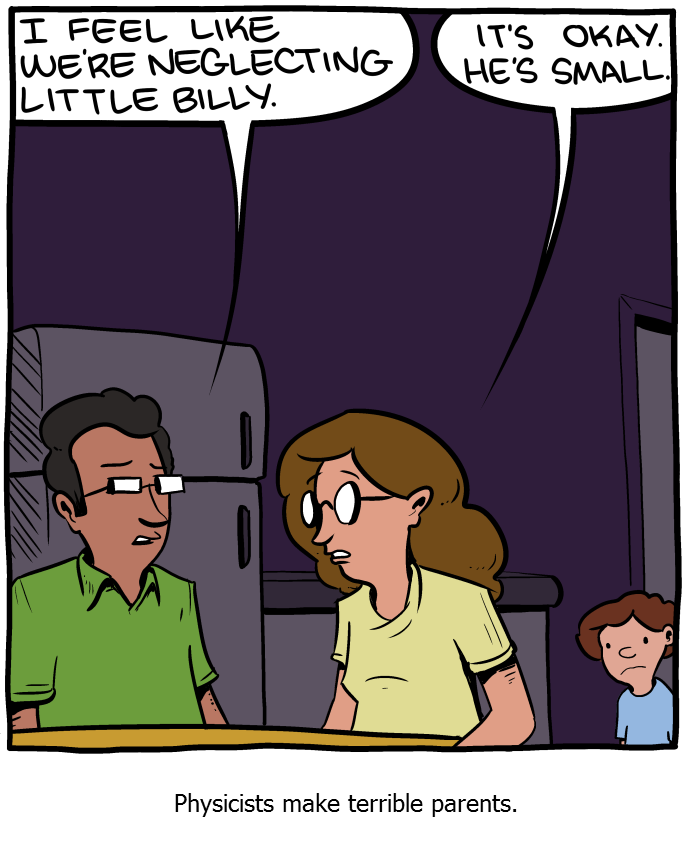| archive - contact - sexy exciting merchandise - search - about | |||
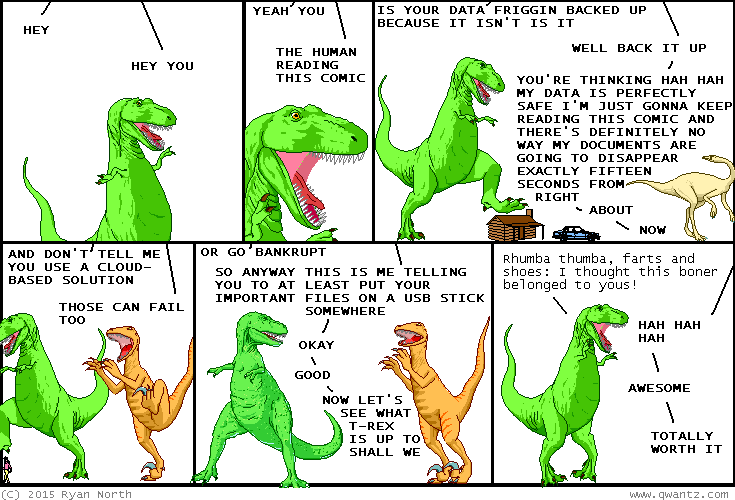 |
|||
| ← previous | January 28th, 2015 | next | |
|
January 28th, 2015: T-Rex has encountered these farts and shoes before. :0 Is there anyone left who says "data" like "dat ah"? Did Star Trek cure us of that disease? Anyway, yo, back that dat-ah up. – Ryan | |||
Shared posts
this comic goes out to captain picard before the events of star trek: nemesis as it concerns the backing up data
Halloween Contest 2014

It’s my annual Halloween Contest! Complete this cartoon and you could win the grand prize of:
- a signed copy of my Cat Adventures book
- a signed copy of my Savage Chickens book
- a set of three Lizard Pals buttons
- a set of three Cat Adventures buttons

And there will be two runner-up winners, who will both win a signed copy of the Cat Adventures book.
To enter the contest, tell me what the chicken is saying in the above cartoon. You can add your entry (or entries) to the comments here, tweet your answer, or send it to me via my contact form. Winners will be announced on Halloween!
10/22/14 PHD comic: 'Written Estimate'
Renatoha!
| Piled Higher & Deeper by Jorge Cham |
www.phdcomics.com
|
|
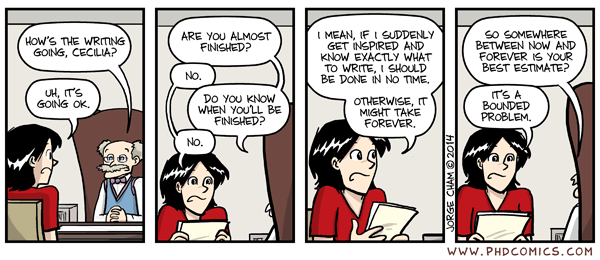 |
||
|
title:
"Written Estimate" - originally published
10/22/2014
For the latest news in PHD Comics, CLICK HERE! |
||
BOM DIA FACES

baseado em pessoas reais
ajude a manter as tiras
patreon
garanta já o seu RyotIRAS 4
http://www.catarse.me/ryotiras4
Effects of Temperature on Intraspecific Competition in Ectotherms.
The American Naturalist, Volume 184, Issue 3, Page E50-E65, September 2014.
Mary Wilson Little
Nostalgia, in 5 Graphs
Tomorrow I’m moving away from the Bay Area, the only post-college home I’ve known. It’s been five years of good ice cream, bad pizza, adorable friends, and monotonously beautiful weather. I’m already nostalgic for Oakland, even as I’m excited for the British adventures that lie ahead (and overwhelmed by the boxes of books that gaze pleadingly up at me, hoping I’ll relocate them).
And what better outlet for nostalgia then graph jokes?
First, the chilling inner life of the non-nostalgic person:
Second, the tragic paradox of the nostalgic soul: Third, the pack rat:
Third, the pack rat:
Fourth, the Buddhist, free of attachments to worldly things:
And finally, me: some messy combination of the above.
To assess your own pack-rat/Buddhist tendencies, feel free to print this post, stick it in a desk drawer, and see how much you want to throw it out after 1, 6, and 12 months.
Robert Wilensky
on the plus side, some cars do look REALLY cool
| archive - contact - sexy exciting merchandise - cute - search - about | |||
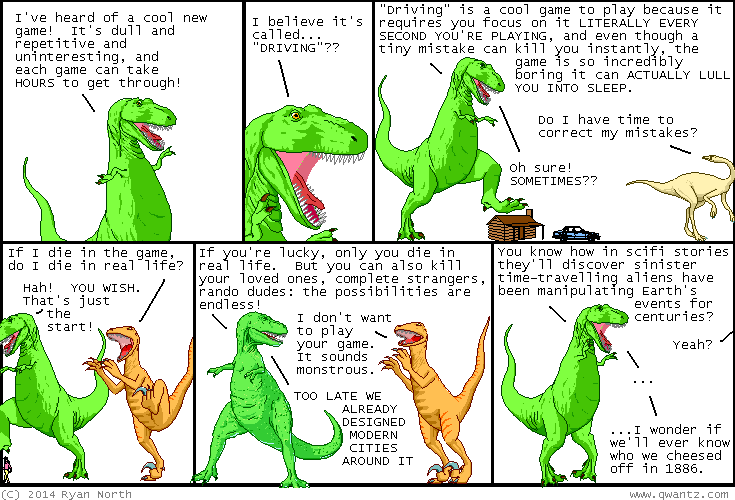 |
|||
| ← previous | March 6th, 2014 | next | |
|
March 6th, 2014: Are you a classy person? PROBABLY, huh?? Well here is a shirt you can wear to all your classy events and blend in perfectly!
 One year ago today: who here wants to watch me write a comic about watching someone eat a sandwich – Ryan 
| |||
Finding and Solving Problems
Luke Muelhauser, executive director of the Machine Intelligence Research Insitute, has been doing some interviews:
• Scott Aaronson on philosophical progress.
• Greg Morrisett on secure and reliable systems.
• Robin Hanson on serious futurism.
Recently he interviewed me. Here’s how it went.
LM: In a previous interview, I asked Scott Aaronson which “object-level research tactics” he finds helpful when trying to make progress in theoretical research, and I provided some examples. Do you have any comments on the research tactics that Scott and I listed? Which recommended tactics of your own would you add to the list?
JB: What do you mean by “object-level” research tactics? I’ve got dozens of tactics. Some of them are ways to solve problems. But equally important, or maybe more so, are tactics for coming up with problems to solve: problems that are interesting but still easy enough to solve. By “object-level”, do you mean the former?
LM: Both! Conceiving of—and crisply posing—good research problems can often be even more important than solving previously-identified research problems.
JB: Okay. Here are some of my tactics.
(1) Learn a lot. Try to understand how the whole universe works, from the philosophical, logical, mathematical and physical aspects to chemistry, biology, and the sciences based on those, to the historical sciences such as cosmology, paleontology, archaeology and history, to the social sciences such as psychology, sociology, anthropology, politics and economics, to the aspects that are captured best in literature, art and music.
It’s a never-ending quest, and obviously it pays to specialize and become more of an expert on a few things – but the more angles you can take on any subject, the more likely you are to stumble on good questions or good answers to existing questions. Also, when you get stuck on a problem, or get tired, it can be really re-energizing to learn new things.
(2) Keep synthesizing what you learn into terser, clearer formulations. The goal of learning is not to memorize vast amounts of data. You need to do serious data compression, and filter out the noise. Very often people will explain things to you in crappy ways, presenting special cases and not mentioning the general rules, stating general rules incorrectly, and so on.
This process goes on forever. When you first learn algebraic topology, for example, they teach you. homology theory. At the beginner’s level, this is presented as a rather complicated recipe for taking a topological space and getting a list of groups out of it. By looking at examples you get insight into what these groups do: the nth one counts the n-dimensional holes, in some sense. You learn how to use them to solve problems, and how to efficiently compute them.
But later—much later, in my case—you learn that algebraic topology of this sort not really about topological spaces, but something more abstract, called “homotopy types”. This is a discovery that happened rather slowly. It crystallized around the 1968, when a guy named Quillen wrote a book on “homotopical algebra”. It’s always fascinating when this happens: when people in some subject learn that its proper object of study is not what they had thought!
But even this was just the beginning: a lot has happened in math since the 1960s. Shortly thereafter, Grothendieck came along and gave us a new dream of what homotopy types might actually be. Very roughly, he realized that they should show up naturally if we think of “equality” as a process—the process of proving two thing are the same—rather than a static relationship.
I’m being pretty vague here, but I want to emphasize that this was a very fundamental discovery with widespread consequences, not a narrow technical thing.
For a long time people have struggled to make Grothendieck’s dream precise. I was involved in that myself for a while. But in the last 5 years or so, a guy named Voevodsky made a lot of progress by showing us how to redo the foundations of mathematics so that instead of treating equality as a mere relationship, it’s a kind of process. This new approach gives an alternative to set theory, where we use homotopy types right from the start as the basic objects of mathematics, instead of sets. It will take about a century for the effects of this discovery to percolate through all of math.
So, you see, by taking something important but rather technical, like algebraic topology, and refusing to be content with treating it as a bunch of recipes to be memorized, you can dig down into deep truths. But it takes great persistence. Even if you don’t discover these truths yourself, but merely learn them, you have to keep simplifying and unifying.
(3) Look for problems, not within disciplines, but in the gaps between existing disciplines. The division of knowledge into disciplines is somewhat arbitrary, and people put most of their energy into questions that lie squarely within disciplines, so it shouldn’t be surprising that many interesting things are lurking in the gaps, waiting to be discovered.
At this point, tactics (1) and (2) really come in handy. If you study lots of subjects and keep trying to distill their insights into terse, powerful formulations, you’re going to start noticing points of contact between these subjects. Sometimes these will be analogies that deserve to be made precise. Sometimes people in one subject know a trick that people in some other subject could profit from. Sometimes people in one subject have invented the hammer, and people in another have invented the nail—and neither know what these things are good for!
(4) Talk to lots of people. This is a great way to broaden your vistas and find connections between seemingly different subjects.
Talk to the smartest people who will condescend to talk to you. Don’t be afraid to ask them questions. But don’t bore them. Smart people tend to be easily bored. Try to let them talk about what’s interesting to them, instead of showing off and forcing them to listen to your brilliant ideas. But make sure to bring them some “gifts” so they’ll want to talk to you again. “Gifts” include clear explanations of things they don’t understand, and surprising facts—little nuggets of knowledge.
One of my strategies for this was to write This Week’s Finds, explaining lots of advanced math and physics. You could say that column is a big pile of gifts. I started out as a nobody, but after ten years or so, lots of smart people had found out about me. So now it’s pretty easy for me to blunder into any subject, write a blog post about it, and get experts to correct me or tell me more. I also get invited to give talks, where I meet lots of smart people.
LM: You’ve explained some tactics for how to come up with problems to solve. Once you generate a good list, how do you choose among them?
JB: Here are two bits of advice on that.
(1) Actually write down lists of problems.
When I was just getting started, I had a small stock of problems to think about – so small that I could remember most of them. Many were problems I’d heard from other people, but most of those were too hard. I would also generate my own problems, but they were often either too hard, too vague, or too trivial.
In more recent years I’ve been able to build up a huge supply of problems to think about. This means I need to actually list them. Often I generate these lists using the ‘data compression’ tactic I mentioned in part (2) of my last answer. When I learn stuff, I ask:
• Is this apparently new concept or fact a special case of some concept or fact I already know?
• Given two similar-sounding concepts or facts, can I find a third having both of these as special cases?
• Can I use the analogy between X and Y to do something new in subject Y that’s analogous to something people have already done in subject X?
• Given a rough ‘rule of thumb’, can I state it more precisely so that it holds always, or at least more often?
as well as plenty of more specific questions.
So, instead of being ‘idea-poor’, with very few problems to work on, I’m now ‘idea-rich’, and the challenge is keeping track of all the problems and finding the best ones.
I always carry around a notebook. I write down questions that seem interesting, especially when I’m bored. The mere act of writing them down either makes them less vague or reveals them to be hopelessly fuzzy. Sometimes I can solve a problem just by taking the time to state it precisely. And the act of writing down questions naturally triggers more questions.
Besides questions, I like ‘analogy charts’, consisting of two or more columns with analogous items lined up side by side. You can see one near the bottom of my 2nd article on quantropy. Quantropy is an idea born of the analogy between thermodynamics and quantum mechanics. This is a big famous analogy, which I’d known for decades, but writing down an analogy chart made me realize there was a hole in the analogy. In thermodynamics we have entropy, so what’s the analogous thing in quantum mechanics? It turns out there’s an answer: quantropy.
I later wrote a paper with Blake Pollard on quantropy, but I gave a link to the blog article because that’s another aspect of how I keep track of questions. I don’t just write lists for myself—I write blog articles about things that I want to understand better.
(2) Only work on problems when you think they’re important and you see how to solve them.
This tactic isn’t for everyone, but it works for me. When I was just getting started I would try to solve problems that I had no idea how to solve. People who are good at puzzles may succeed this way, but I generally did not.
It turns out that for me, a better approach is to make long lists of questions, and keep thinking about them on and off for many years. I slowly make progress until—poof!—I think I see something new and important. Only then do a take a problem off the back burner and start intensely working on it.
The physicist John Wheeler put it this way: you should never do a calculation until you already know the answer. That’s a bit of an exaggeration, because it’s also good to fool around and see where things go. But there’s a lot more truth to it than you might think.
Feynman had a different but related rule of thumb: he only worked on a problem when he felt he had an “inside track” on it—some insight or trick up his sleeve that nobody else had.
LM: And once you’ve chosen a problem to solve, what are some of your preferred tactics for actually solving it?
JB: By what I’ve said before, it’s clear that I get serious about a problem only after I have a darn good idea of how to solve it. At the very least, I believe I know what to do. So, I just do it.
But usually it doesn’t work quite that easily.
If you only officially tackle problems after absolutely every wrinkle has been ironed out by your previous musings, you’re being too cautious: you’ll miss working on a lot of interesting things. Many young researchers seem to fall prey to the opposite error, and waste time being completely stuck. The right balance lies in the middle. You break a problem down into sub-problems, and break those down into sub-subproblems… and you decide you’re ready to go when all these sub-subproblems seem likely to be doable, even before you’ve worked through the details.
How can you tell if they’re doable? This depends a lot on having previous experience with similar problems. If you’re a newbie, things that seem hard to you can be really easy to experts, while things that seem easy can turn out to be famously difficult.
Even with experience, some of sub-subproblems that seem likely to be routine will turn out to be harder than expected. That’s where the actual work comes in. And here it’s good to have lots of tricks. For example:
(1) If you can’t solve a problem, there should be a similar problem that’s a bit easier. Try solving that. And if you can’t solve that one… use the same principle again! Keep repeating until you get down to something you can solve. Then climb your way back up, one step at a time.
Don’t be embarrassed to simplify a problem to the point where you can actually do it.
(2) There are lots of ways to make a problem easier. Sometimes you should consider a special case. In math there are special cases of special cases of special cases… so there’s a lot of room for exploration here. If you see how enough special cases work, you’ll get ideas that may help you for your original problem.
(3) On the other hand, sometimes a problem becomes simpler when you generalize, leaving out potentially irrelevant details. Often people get stuck in clutter. But if it turns out the generalization doesn’t work, it may help you see which details were actually relevant.
(4) Sometimes instead of down or up the ladder of generality it pays to move across, by considering an analogous problem in a related field.
(5) Finally, a general hint: keep a written record of your efforts to solve a problem, including explanations of what didn’t work, and why. Look back at what you wrote from time to time. It’s amazing how often I come close to doing something right, forget about it, and come back later—sometimes years later—and see things from a slightly different angle, which makes everything fall into place. Failure can be just millimeters from success.
Friday coffee break: The saddest of Barbies, the nastiest of penguins, and the murdering-est of house pets
From Sarah: Grad School Barbie is probably not this year’s hot toy. And your lack of confidence with mathematics is probably not due to your genes.
From Jeremy: Dolphins and penguins and otters are actually not all that cute to each other. And a new review considers how human food waste distorts natural population dynamics.
For National Cat Day (which was Tuesday), CJ reminds us all that outdoor-living cats are really bad for outdoor-living wildlife.
August 18, 2013
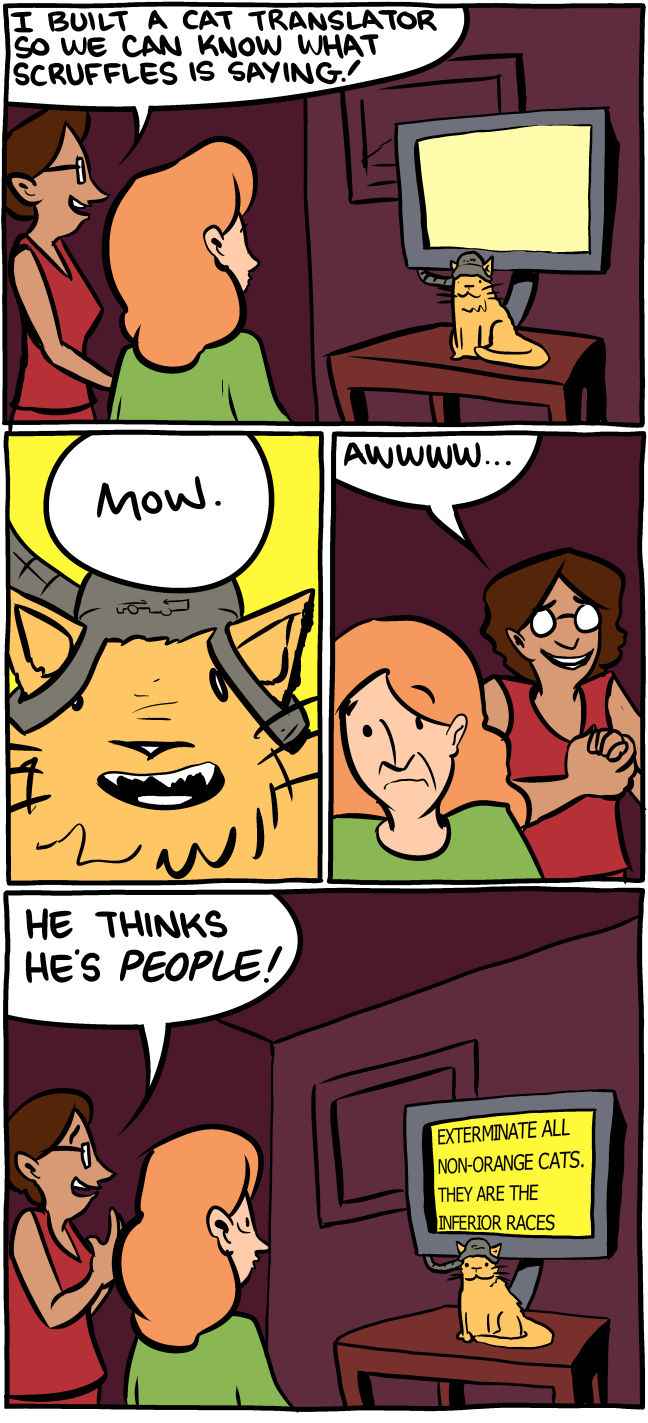
Geeks! There's an AWESOME kickstarter that's almost there in its final two days! Please give it a look. It involves the rare combination of science and theater! >
Space Oddity com o Comandante Chris Hadfield
Apenas tentem assistir a esse vídeo sem se emocionar.
Everybody Loves Me

Oh those crazy narcissists.




















